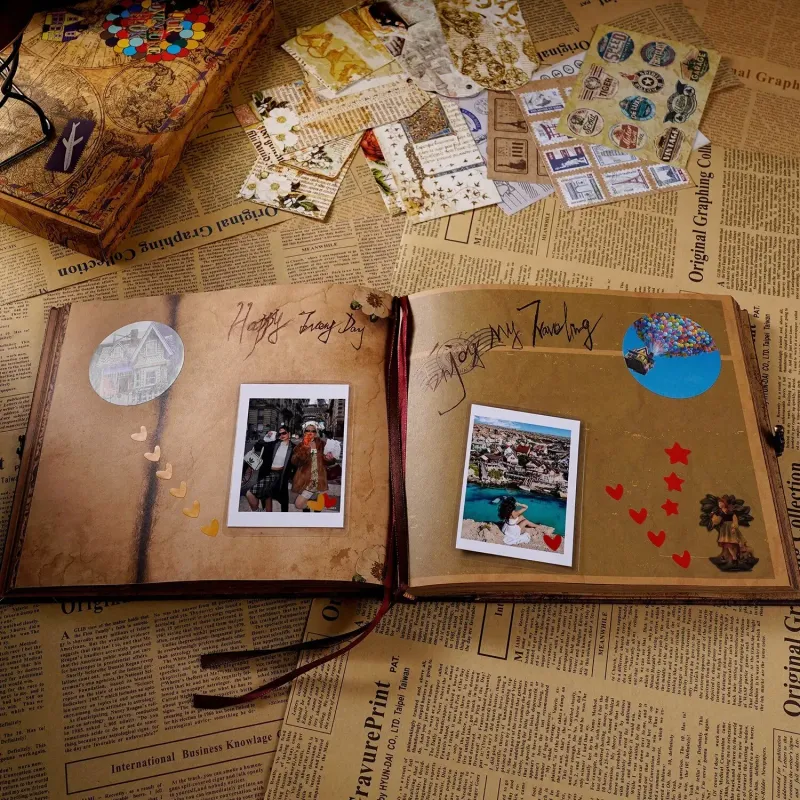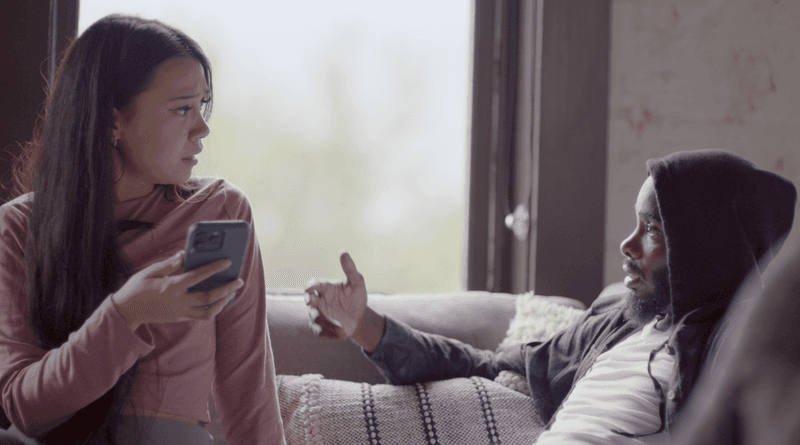18 Surprising Reasons Couples Choose To Stay In Unhealthy Relationships
Navigating the landscape of relationships can be complex, especially when those relationships are unhealthy.
While it may be easy to judge from the outside, understanding the deeper emotional and psychological reasons that keep individuals tethered to such dynamics can be enlightening.
This article explores 18 surprising reasons why couples might choose to stay in unhealthy relationships, shedding light on the intricate web of emotions and circumstances that play a role.
1. They’ve invested so much time, it feels wasteful to leave

With each passing year, the weight of shared memories binds couples together, making the thought of leaving feel like discarding years of investment. This emotional bank of birthdays, anniversaries, and firsts can make the idea of starting fresh seem daunting.
For many, the notion of ending something they’ve poured time and energy into feels like letting go of a part of themselves. The past becomes a comforting quilt of familiarity, even if it’s worn and frayed.
While outsiders may see chains of stagnation, those within may view it as an intricate tapestry of life experiences. This perspective can obscure the underlying discontent, convincing them that change isn’t worth the potential unraveling of their shared history.
2. Financial entanglements make independence feel impossible

When finances are intertwined, extracting oneself from a relationship feels akin to untangling a web. From shared mortgages to joint bank accounts, the financial commitments can hold partners captive in a tapestry of dependency.
The fear of financial instability looms large, especially for those who have little personal savings or financial literacy. This economic bind can create an illusion of security, masking the underlying emotional turmoil.
For some, the thought of going it alone financially is terrifying enough to keep them tethered to a relationship that no longer brings joy. The financial safety net, though frayed, often feels more reliable than the unknown.
3. They confuse loyalty with love

Loyalty is often seen as a noble trait, yet it can be mistaken for love in relationships where the emotional connection has faded. Standing by a partner through thick and thin sounds romantic, but blind loyalty can tether individuals to unhealthy dynamics.
The line between loyalty and love blurs when partners equate enduring hardship with genuine affection. This misconception can lead to staying in relationships where love is no longer the binding force.
For some, the fear of being perceived as disloyal overrides their need for personal happiness. This misalignment keeps them anchored in loyalty even when love has set sail.
4. They fear being blamed for “giving up”

Societal expectations often paint leaving a relationship as a sign of failure. The fear of being labeled as someone who gave up can pressure individuals to remain in unhealthy partnerships.
Such blame can stem from cultural norms, family values, or personal beliefs about commitment. This internalized shame becomes a barrier, making the notion of leaving fraught with emotional landmines.
For many, the idea of bearing the blame is a heavy burden, leading them to stay in a relationship despite the cracks in its foundation. It becomes a paradox of staying to avoid the stigma of leaving.
5. Hope keeps dangling—just enough to stay

Hope, like a flickering candle, can illuminate the darkest paths, yet it can also blind individuals to reality. In unhealthy relationships, hope often dangles like a carrot just out of reach, promising change that never comes.
This hope, whether for a partner to change or for circumstances to improve, becomes a powerful adhesive. It binds individuals to a narrative where tomorrow will be better, keeping them anchored in today’s discontent.
The glimmer of hope, however dim, provides enough light to obscure the shadows of their current reality, making the thought of leaving seem premature or unnecessary.
6. They’re more scared of starting over than staying stuck

The prospect of starting over can be terrifying, often more so than the discomfort of staying in a known but unhappy situation. The fear of the unknown casts a long shadow, making the stagnant present seem less daunting.
The thought of rebuilding a life from scratch, forming new connections, and facing an uncertain future can feel overwhelming. This fear is a powerful deterrent, anchoring individuals in their current circumstances.
For many, the familiarity of their situation, however unsatisfying, offers a semblance of security. It’s a paradox of choosing the devil they know over the uncertainty of uncharted territories.
7. Shared history feels heavier than present pain

In relationships where history is rich and full, the weight of shared experiences often overshadows present discontent. The tapestry of a life spent together, woven with memories, becomes a comforting shroud.
For some, the thought of leaving feels like tearing apart a quilt sewn from years of joint experiences. The emotional ties of shared history create an illusion of solidity that can be hard to shake.
Even when current realities are less than ideal, the lingering echoes of past joys and milestones create a binding force stronger than the pain of the present moment.
8. Family or community pressure makes leaving feel like betrayal

Leaving a relationship often carries the burden of external judgment, especially from family or community. The fear of disappointing loved ones or going against cultural norms can make the decision to leave feel like a betrayal.
For many, the pressure to maintain the facade of a perfect relationship becomes an imprisoning force. The expectations of family and community act as invisible chains, binding individuals to unhealthy dynamics.
The fear of gossip, judgment, or ostracism can be overpowering, leading individuals to prioritize external perceptions over personal happiness. The struggle between self and society becomes a silent battle, often keeping them stuck.
9. They minimize their own pain because “it’s not that bad”

Minimizing personal pain is a common coping mechanism, especially in relationships where the discomfort is persistent but not overwhelming. The mindset of “it’s not that bad” becomes a mantra, blurring the line between tolerance and denial.
This minimization creates a false sense of stability, convincing individuals that enduring minor discomfort is preferable to facing the upheaval of change. The cumulative effect of small hurts can go unnoticed until the weight becomes unbearable.
For some, acknowledging the full extent of their pain feels like opening a floodgate, preferring the comfort of denial over the vulnerability of truth.
10. They worry about what leaving would do to the kids

When children are involved, the stakes of leaving a relationship skyrocket. Parents often worry about the impact of separation on their children, fearing emotional scars that could linger.
The desire to provide a stable environment for their children becomes a powerful motivator to endure an unhappy relationship. The fear of disrupting their children’s lives can overshadow personal unhappiness.
For many, the well-being of their children becomes a priority, making them sacrifice their own happiness to maintain the illusion of a cohesive family unit. It’s a heart-wrenching choice between their needs and those of their children.
11. They think love has to be hard to be real

The belief that love is supposed to be challenging can keep individuals trapped in unhealthy relationships. This romanticized notion equates struggle with depth, making difficulty a perceived hallmark of true love.
This ideology suggests that love worth having must be fought for, even at the cost of personal well-being. It creates a narrative where enduring hardship is seen as a testament to love’s strength.
For many, this belief becomes a lens through which they interpret relationship dynamics, blinding them to the possibility of a love free from struggle. The allure of a love tested by trials often obscures the reality of their suffering.
12. They mistake trauma bonding for intimacy

Trauma bonding, where the highs and lows of a relationship create a volatile yet addictive cycle, is often mistaken for deep intimacy. The shared experiences of overcoming adversity can create a powerful, albeit unhealthy, connection.
The emotional rollercoaster of trauma bonding becomes a substitute for genuine intimacy, leading individuals to confuse emotional turbulence with closeness. This mistaken identity keeps them tied to relationships that thrive on chaos.
For some, the intensity of this bond feels irreplaceable, making them fear losing the semblance of connection they’ve come to depend on. It’s a perplexing cycle of seeking solace in instability.
13. They’ve normalized disrespect over time

Disrespect, when experienced over time, becomes normalized, eroding the boundaries of healthy interaction. In such relationships, the gradual acceptance of disrespectful behavior creates a new normal that’s hard to challenge.
This normalization dulls the senses, making individuals oblivious to the insidious nature of their interactions. The gradual erosion of respect becomes a slow descent into tolerating what they once found unacceptable.
For many, the realization of this normalcy comes too late, as they find themselves entrenched in a relationship where disrespect has become an unspoken rule. The inertia of habit keeps them bound to a cycle of acquiescence.
14. They believe this is “the best they’ll get”

The belief that they can’t do better traps individuals in unhealthy relationships. This mindset erodes self-esteem, convincing them that their current situation is as good as it gets.
The fear of being alone or unworthy of a better relationship becomes a self-fulfilling prophecy, keeping them in a holding pattern of dissatisfaction. This belief distorts their perception of potential happiness.
For some, breaking free from this narrative feels impossible, as they convince themselves that their current relationship is their only option. It’s a heartbreaking acceptance of mediocrity over the pursuit of genuine fulfillment.
15. The apology cycle gives just enough emotional payoff

The apology cycle, where moments of contrition follow instances of hurt, creates a temporary sense of relief that keeps individuals hooked. This cycle offers just enough emotional payoff to obscure the underlying issues.
These apologies act as Band-Aids on deeper wounds, providing short-lived comfort that delays the need for real change. The emotional whiplash of this cycle becomes addictive, creating a rhythm that’s deceptively soothing.
For many, the hope that each apology will lead to lasting change keeps them tethered to the relationship, even when patterns remain unchanged. It’s a cycle of hope and disappointment masquerading as progress.
16. They don’t trust their ability to survive alone

The fear of independence and self-reliance often keeps individuals in unhealthy relationships. The belief that they can’t survive alone undermines their confidence, making them feel trapped in dependency.
The prospect of autonomy feels like standing on the edge of a precipice, where the unknown is both terrifying and tempting. This fear paralyzes decision-making, convincing them that dependence is safer.
For many, the journey to self-trust seems insurmountable, as they remain ensnared by the comforting familiarity of their current situation. The fear of the unknown becomes a silent jailer, keeping them in place.
17. They fear regret more than misery

The fear of future regret often outweighs the present misery for individuals in unhealthy relationships. The idea of leaving only to look back with remorse keeps them anchored in dissatisfaction.
This fear is fueled by what-ifs and the potential of making a mistake, paralyzing decision-making. The prospect of regret becomes a haunting specter, overshadowing the desire for current happiness.
For many, the thought of regretting leaving is a heavier burden than enduring known misery. It’s a paradox where the fear of a hypothetical future blinds them to the possibility of a fulfilling present.
18. They still love the idea of who their partner used to be

Holding onto the memory of who a partner once was keeps individuals in relationships that have long since changed. The nostalgia for past versions of their partner creates an emotional mirage, obscuring reality.
This attachment to the idea of their partner becomes a prison of memory, where the past glows brighter than the present. It’s a comforting illusion that blinds them to the changes time has wrought.
For many, the hope of rekindling past joys binds them to a relationship that no longer reflects those memories. It’s a bittersweet attachment to what once was, rather than what is.







